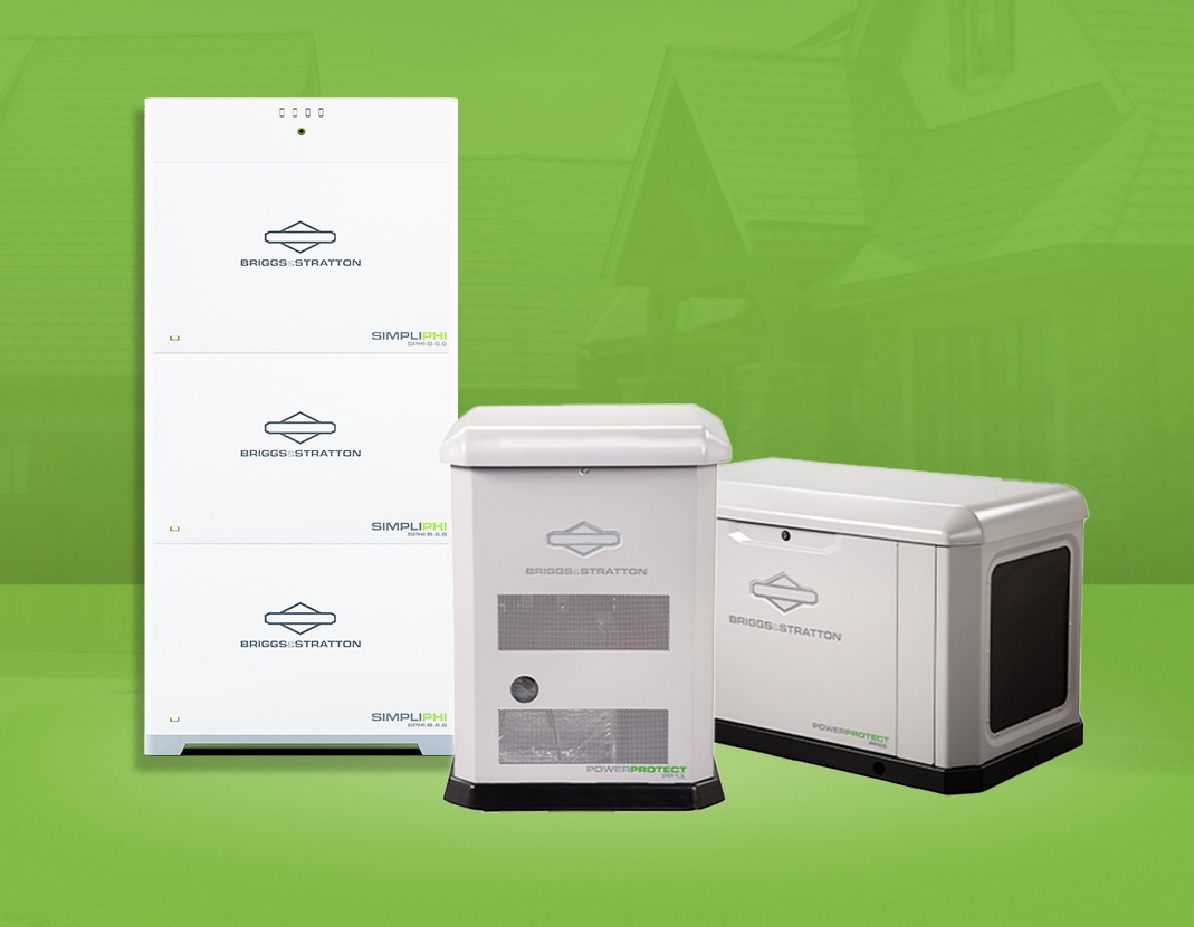According to the National Interagency Fire Center, there are currently 95 large active wildfires that have burned over 2,180,105 acres.
The wildfire season has become an unfortunate reality for many regions, including the West Coast. Along with the immediate threat of wildfires, the increased risk of Public Safety Power Shutoffs (PSPS) has left many homeowners scrambling for reliable backup power solutions. Battery storage and home standby generators have emerged as the leading contenders, offering unique benefits to keep your home running smoothly during outages. Let's explore these options in detail, ensuring you're well-prepared for whatever the wildfire season may bring.
Battery Storage: A Silent, Sustainable, and Incentivized Powerhouse
Battery storage systems are gaining immense popularity for their ability to store energy and seamlessly provide power during outages. They can be paired with solar panels to store excess solar energy or used independently to store energy from the grid.
Key Advantages:
- Uninterrupted Power: When the grid goes down, battery storage systems instantly kick in, ensuring a continuous flow of electricity to your essential appliances and devices.
- Quiet Operation: Unlike generators, battery storage systems operate silently, making them ideal for residential neighborhoods.
- Environmental Friendliness: As a clean energy solution, battery storage systems produce zero emissions, reducing your carbon footprint and contributing to a healthier environment.
- Financial Incentives: Numerous state, federal, and utility incentives are available for battery storage installations, significantly reducing the upfront cost.
- SGIP (Self-Generation Incentive Program): California residents can take advantage of the SGIP program, which offers rebates for installing energy storage systems. The amount of the rebate varies depending on several factors, including income level, location, and battery chemistry. Notably, the program offers additional incentives for systems from manufacturers like Briggs & Stratton, who are listed on the California Public Utility Commission's California Manufacturer list.
- IRA (Inflation Reduction Act) Tax Credit: Homeowners across the U.S. can benefit from a 30% federal tax credit for installing battery storage systems, even when retrofitting an existing solar system. This credit can be claimed on your income taxes, reducing the overall cost of your investment.
- Energy Savings: By storing excess solar energy or off-peak electricity, battery storage systems can help you reduce your monthly energy bills and even earn money through demand response programs.
- Increased Home Value: Studies have shown that homes equipped with battery storage systems can have a higher resale value due to their energy efficiency and resilience.
- Versatility: Battery storage systems can be used with or without solar panels, providing flexibility to homeowners with different energy needs and budgets.
Home Standby Generators: The Workhorse for High-Power Needs
Home standby generators are a reliable option for those with higher power demands or who require extended backup power during prolonged outages.
Key Advantages:
- High Power Output: Home standby generators can power your entire home, including high-wattage appliances like air conditioners, refrigerators, and sump pumps.
- Automatic Operation: These generators are designed to automatically start within seconds of a power outage, ensuring you're never left in the dark.
- Fuel Flexibility: Most standby generators run on natural gas or propane, offering a convenient and readily available fuel source.

Choosing the Right Solution for Your Home
Selecting the ideal backup power solution depends on several factors, including:
- Power Needs: Calculate the total wattage of the appliances and devices you want to power during an outage. This will determine the size and capacity of the system you need.
- Budget: Battery storage systems typically have a higher upfront cost but offer long-term savings on energy bills and reduced environmental impact. Home standby generators, on the other hand, are often more affordable initially but require ongoing fuel costs.
- Convenience: Battery storage systems are virtually maintenance-free and operate silently. Home standby generators require regular maintenance and can be heard by neighbors during operation.
- Incentives: Research the available state, federal, and utility incentives to determine if they can significantly offset the cost of your chosen solution.
- Solar Integration: If you have or plan to install solar panels, a battery storage system can be a great way to maximize your energy independence and savings.
Essential Tips for Wildfire Season Preparedness
In addition to investing in a backup power solution, consider these essential tips for a safe and comfortable wildfire season:
Emergency Kit
Prepare a well-stocked emergency kit with essentials like water, non-perishable food, first-aid supplies, and flashlights.
Communication Plan:
Establish a communication plan with family and friends to stay connected during emergencies.
PSPS Alerts:
Sign up for PSPS alerts from your utility company to receive timely notifications of potential outages.
Defensible Space:
Create a fire-resistant zone around your home by clearing brush, debris, and flammable materials.
By understanding the benefits and considerations of battery storage and home standby generators, along with following essential preparedness tips, you can confidently face the wildfire season and any potential PSPS events. Remember, being proactive and prepared is the key to ensuring the safety and comfort of your family during challenging times.
Learn About Incentives & Rebates and Download Our Free SGIP Guide




